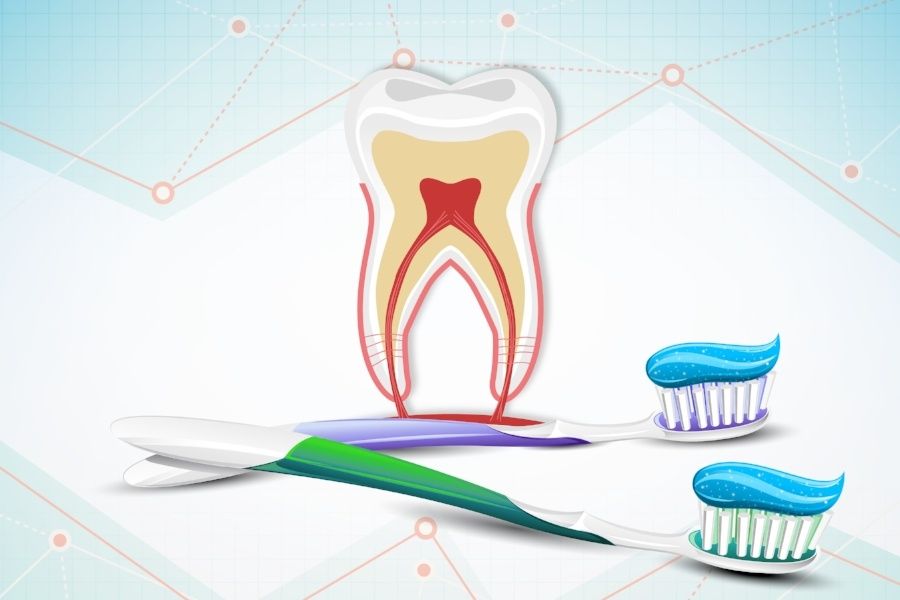
When most people think of dentistry, they don't often consider marketing campaigns in the same thought. And yet, in reality, dental practices have always been remarkably active marketers.
Almost everyone is familiar with the delightful holiday postcards and the big grinning billboards advertising local and family dental practices.
Some dentists even send thoughtful hand-written letters each year to past clients encouraging them to care for their teeth and while the postcards, billboards, and letters may bring back a handful of people each year for their annual cleaning and inspection, the purpose of marketing is also to reach out to new clients.
Here in the digital age, the best way to do that is through inbound marketing. When people really need a dentist, they're not thinking of a smiling billboard. They're getting on Google. Inbound marketing is a way to provide useful information to potential clients and invite them to seek further assistance in your offices.
The key to successful inbound marketing for a dental practice is simply to know what questions your 'leads' will ask their search engines and then provide the answers.
The Principles of Inbound Marketing
The entire idea behind inbound marketing is to let the customers come to you.
Rather than getting out on the sidewalks with dancing mascots and sign holders or distracting web viewers with flashy advertisements, instead create something of value that people will seek on their own.
While this would once have sounded far-fetched, in the last 20 years we have become a remarkably DIY oriented society.
The increasing access and usability of search engines makes it possible to look up almost anything and doing so is the practical first step to almost any problem.
Therefore it is now safe to assume that the vast majority of modern consumers will do a Google search about their troubles before and possibly instead of seeking a service to help them.
In order to successfully inbound market your dental practice, simply provide what your clients are looking for, then helpfully offer further services at the end of each article.
Common Health Concerns
Almost no one's tooth care meets the high standards recommended by dentists so it's not surprising that most people are worried that something could go wrong with their teeth, especially when there's some evidence to back up the suspicion.
They wonder if they brush often enough, if the foods they're eating are harmful, and if they should take better care of the teeth of the children or pets in their care. Some research what makes teeth strong, others research enamel risks.
These are questions they would absolutely love to ask a dentist but who wants to schedule, wait for, and pay for an appointment to what seems like idle curiosity?
To inbound market to people who are researching their dental concerned, simply write a few articles on good dental advice responding to each of the most common questions about dental health and a few unusual ones as well.
Some of the dozens of potential topics might include:
- What makes teeth sensitive to temperature
- Why your teeth hurt when you eat sweets
- How to keep your teeth strong
- Teaching your child to brush their teeth well
- What holiday food is safe to eat with braces
In many ways, this is your opportunity to give all that dental advice you wish your patients would listen to when you tell them in the office.
What to eat, when to brush, and how to teach kids to do it right so they'll have strong and healthy teeth for the rest of your lives.
If you like explaining dental best practices, now is your chance. With inbound marketing, the blogs you write might even be helping people and drawing customers to your practice years from now because the advice will still be solid.
Emergency Dental Concerns
Then there are the people who are suffering from a serious tooth problem that is causing them significant pain or discomfort. Nothing drives you to research faster than distracting pain and these people need often need your help immediately once they realize what's wrong.
Articles along these lines can explain specific conditions but should always focus on identifying the symptoms first as this will be what people use to search.
For instance, these popular searches all pop up on google when you type "Why do my teeth..."
- Why do my teeth hurt when I run?
- Why do my teeth feel sore?
- Why do my teeth and gums hurt?
- Why do my teeth hurt when I bite down?
Often the answer to these questions will be relative, as several conditions share similar symptoms and you can't really know what's wrong without a look.
However, sharing this along with an explanation of the most likely causes of each set of symptoms will help people understand that research is fantastic but they really do need to see a real dental professional to diagnose and solve their dental concerns.
You can answer all of the most popular questions and many more interesting and engaging ones with a steady inbound marketing dental blog. The more common dental questions you answer clearly in laymen's terms for your tooth concerned audience, the more search engine users will find you.
Just remember at the end of each article to include a call to action like coming in for an appointment or checking out your practice if they're in your area.
For more helpful inbound marketing tips for dentists, contact us today!













